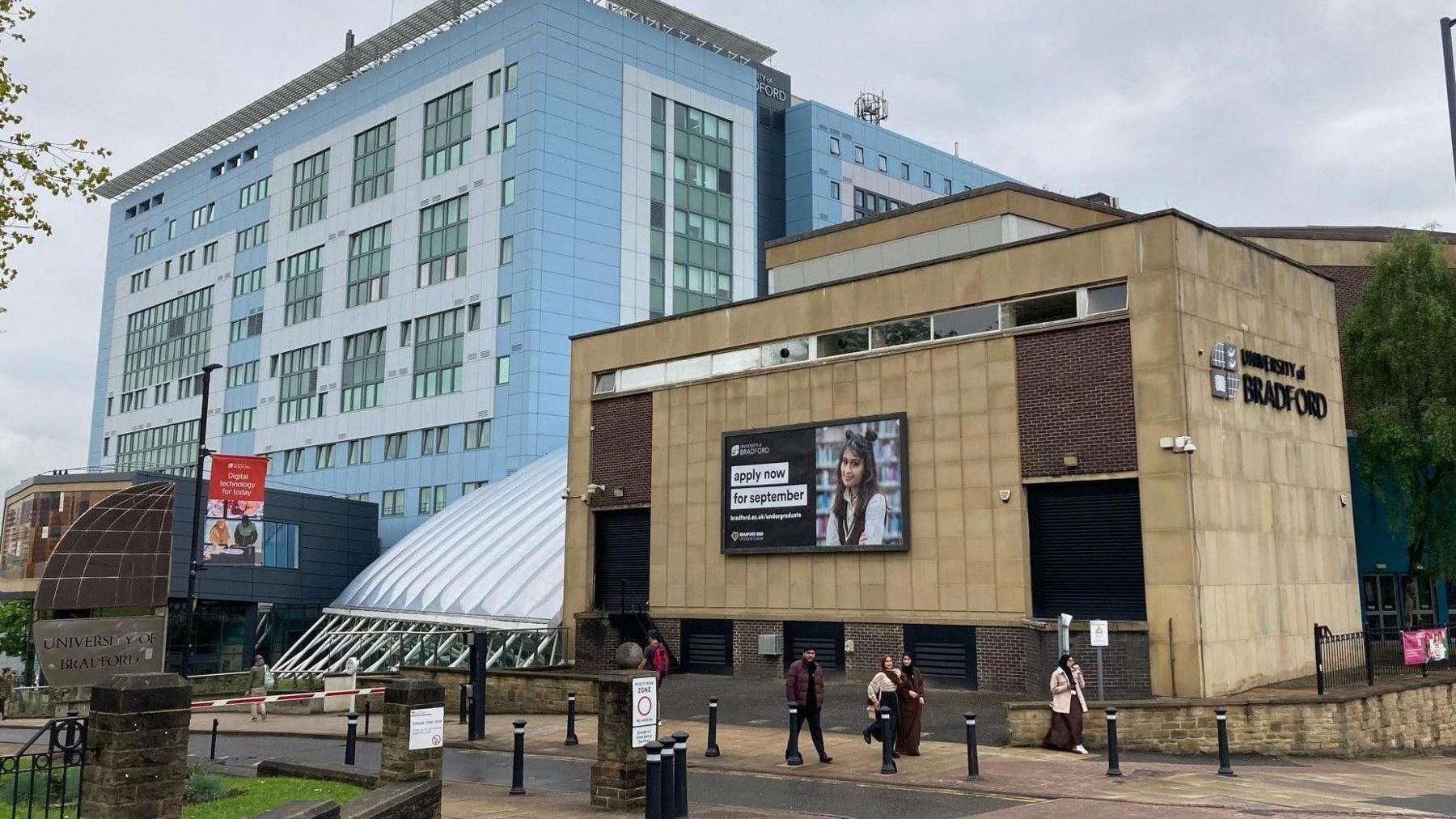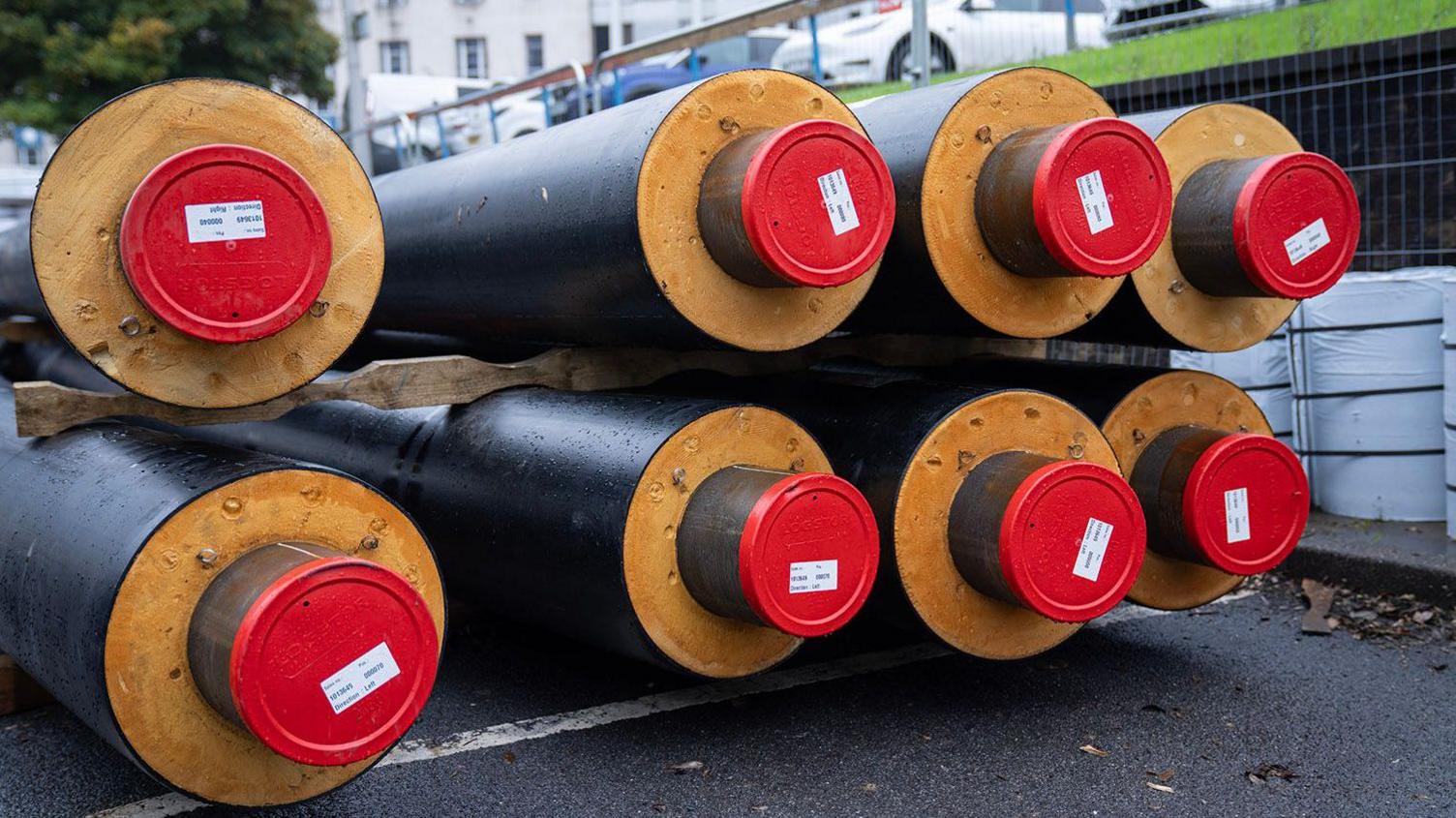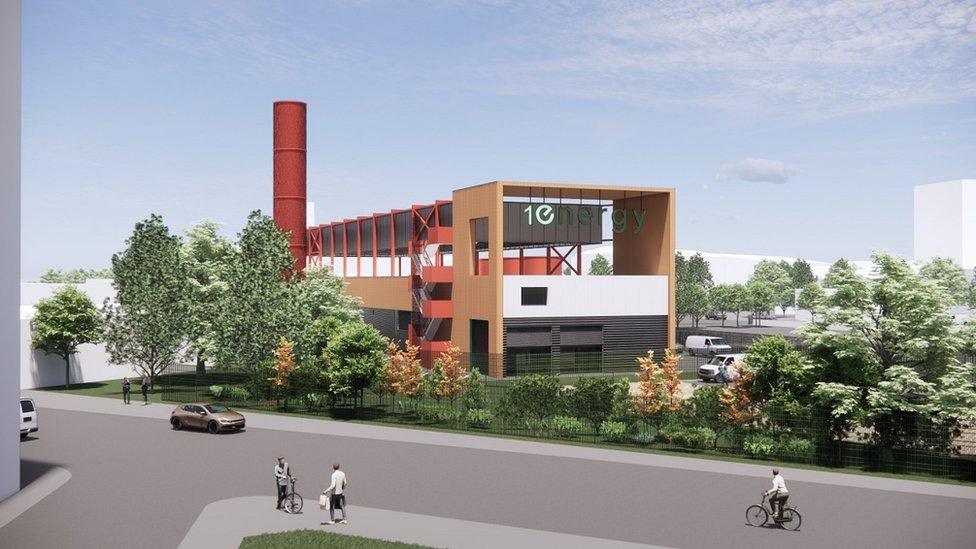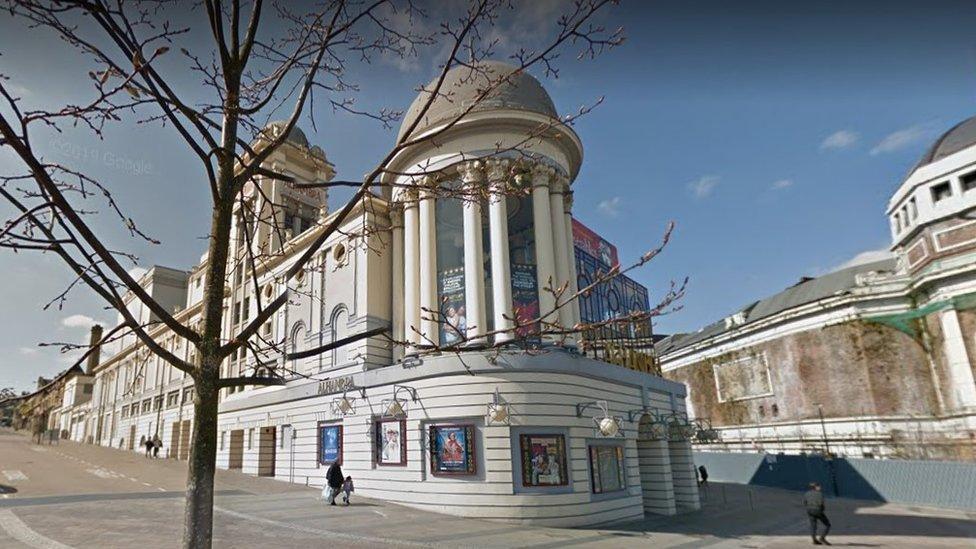City a 'blueprint' for low-carbon heating

The network will see gas boilers taken out and replaced with heat pumps
- Published
A new low-carbon heating network supplying civic buildings in Bradford city centre will act as a “blueprint” for similar schemes across the country, it is claimed.
The Bradford Heat Network will use air source heat pumps to warm water, which is then run through underground pipes to customers.
Due for completion by 2027, work has now started to link the University of Bradford and Bradford College to the network.
Developer 1Energy said the "flagship project" in Bradford would “provide a blueprint to decarbonise cities and towns nationally”.
The university will be the network’s biggest customer, with 11 of its buildings being heated by the scheme.
Bradford College and the courts building will also be on the network, as will Bradford City Hall and a number of other council-run buildings.

1Energy has secured £75m of investment for its heat pump-powered network in Bradford
Prof Shirley Congdon, vice chancellor of the University of Bradford, said connecting to the network was a "pivotal moment for the city and the UK".
She said: "The network provides an opportunity to show the government how to build a brighter future for young people across the country, with other cities following in Bradford’s footsteps.
“It shows how we as a university are enabling positive change for people and planet.”
Chris Malish, vice principal of Bradford College, said an annual direct carbon saving of more than 285 tonnes was predicted, "moving us a step closer to achieving net zero".
In 2019, the government set statutory targets for the country to achieve net zero carbon by 2050.
A key part of the government’s net zero carbon policy is the decarbonisation of heat.
For businesses in Bradford and across the country who use gas to create heat, this will mean moving from the current reliance on gas boilers to lower-carbon or net zero forms of heating over the coming years.
According to the Local Democracy Reporting Service, 1Energy said the Bradford network was projected to reduce the carbon emissions from connected buildings by 80% during its first phase.
Using Bradford as a starting point, it said it hoped to invest £1bn within the next eight years in building other heat networks across the UK.
Chief executive Andrew Wettern said: “The Bradford Energy Network is a flagship project in the UK’s transition to low-carbon heating."
He said the project was "already delivering significant social value and wider benefits to the city" by creating new jobs and skills.
Listen to highlights from West Yorkshire on BBC Sounds, catch up with the latest episode of Look North or tell us a story you think we should be covering here, external.
Related internet stories
- Published18 September 2023

- Published1 November 2022
